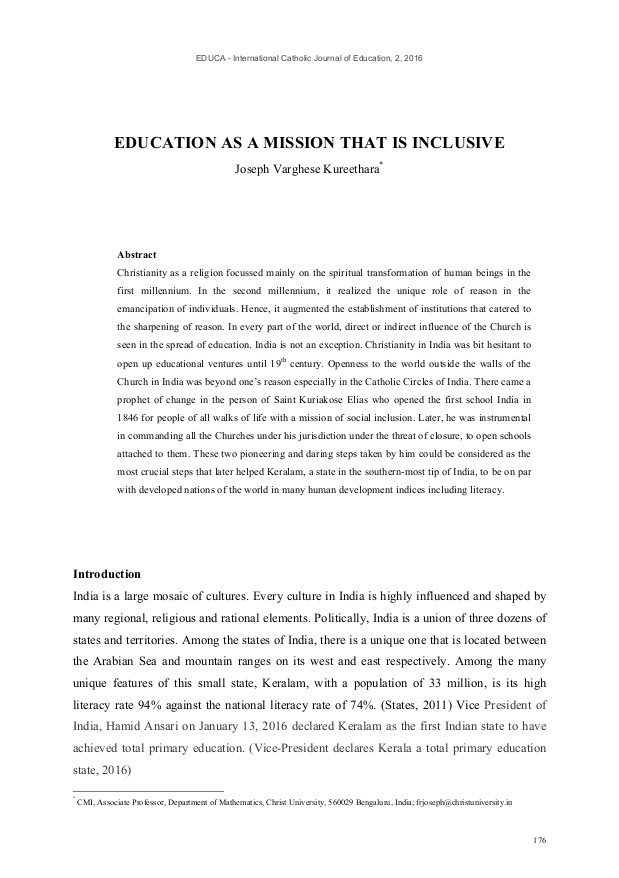Education as a mission that is inclusive
Main Article Content
Abstract
Christianity as a religion focussed mainly on the spiritual transformation of human beings in the first millennium. In the second millennium, it realized the unique role of reason in the emancipation of individuals. Hence, it augmented the establishment of institutions that catered to the sharpening of reason. In every part of the world, direct or indirect influence of the Church is seen in the spread of education. India is not an exception. Christianity in India was bit hesitant to open up educational ventures until 19th century. Openness to the world outside the walls of the Church in India was beyond one’s reason especially in the Catholic Circles of India. There came a prophet of change in the person of Saint Kuriakose Elias who opened the first school India in 1846 for people of all walks of life with a mission of social inclusion. Later, he was instrumental in commanding all the Churches under his jurisdiction under the threat of closure, to open schools attached to them. These two pioneering and daring steps taken by him could be considered as the most crucial steps that later helped Keralam, a state in the southern-most tip of India, to be on par with developed nations of the world in many human development indices including literacy.

